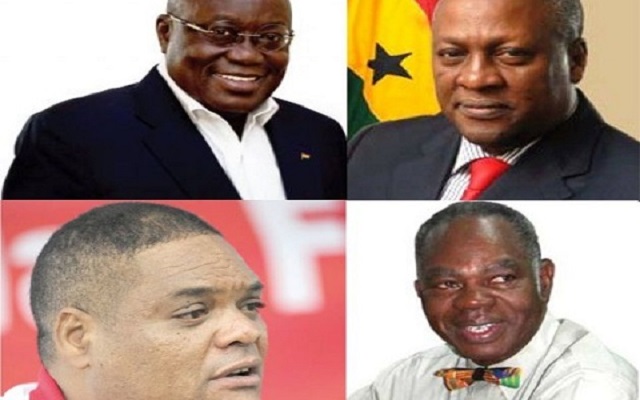
The next chapter of Ghana’s democratic history
In just under three weeks Ghanaians will go to the polls to elect a President and Parliament. Whoever the victor may be is entirely for them to decide. But in voting, men and women, aged 18 and over and from all backgrounds have a chance to write the next chapter of Ghana’s democratic history.
Advertisement
That history has often been a yardstick for wider African democracy. And so on December 7, the eyes of a continent will be on Ghana. What happens here matters; Ghana’s friends around the world — and the US and UK in particular — are united in hoping that the election is peaceful, transparent, and fair and that — win or lose — all sides respect the outcome. Election observer missions from the African Union, the European Union, the Commonwealth, the United States and elsewhere will be watching intently.
As committed supporters of Ghana, the UK and US share an open and frank dialogue with the government of Ghana, the Electoral Commission (EC) and the leaders of Ghana’s political parties on all aspects of the electoral process. We have encouraged all players to put in place the necessary conditions for a successful election, free from violence and with wide participation.
Peaceful environment
Much has been done to that end. However, concerns remain and the last 24 years should not breed complacency. Ghana’s rich tradition of peace between people of different ethnic and religious backgrounds is one of its hallmarks, as are its security structures and national peace bodies.
It is their responsibility to provide a peaceful environment and election security, not political vigilante groups. We commend the Ghana Police Service in their efforts to clamp down on those who seek to provoke tensions around the election and call on political parties to disown all vigilante groups. People who participate in or inspire such groups are an obstacle to democracy and enemies of Ghana.
So too are those who incite violence. Freedom of expression is a fundamental human right. Alongside an independent media it is one of the mainstays of any functioning democracy: people must be allowed to discuss issues freely, express their opinions and challenge those of others. But where that freedom is abused, action should be taken domestically and internationally, in particular by bodies that monitor and regulate the media and by leaders of political parties to hold their members to account.
This is something that we watch closely: British and US laws are clear that those who propagate hateful views here have no place in our countries; so where we have discretion to act we will do so, including by considering refusing or cancelling visas.
Use of social media
However, as we have also made clear, fears around incitement are not an excuse to curtail freedom of speech, including on the Internet. Social media can be abused. It can also be a huge force for good — a vital tool in providing people with reliable and accurate information and promoting transparency.
We believe there are no circumstances in which turning it off can be justified. Instead, we urge everyone to use social media responsibly — refraining from half-truths and remembering that there is no such thing as anonymity online — and to encourage leaders to rebut rumour with facts.
We welcome the commitment we hope all political parties will publicly make to non-violence in the planned Accra Declaration on November 23. It is imperative that political parties — and their backers — live up to this pledge. Elections should be decided at the ballot box and, if necessary, disputes resolved in the courts.
Respect for the law and the constitutional process is vital. Likewise, the EC must be independent, unfaltering in its administration of the process, swift and resolute in dealing with political intimidation, and open to listening and responding to legitimate concerns voiced by political parties, the media and the public.
After election
After the election, attention will naturally focus on the winner. But, in any democracy, the unsuccessful candidates also have critical roles to play. No-one expects any political leader to retreat from their beliefs, but a losing candidate owes it to his or her country to acknowledge defeat as soon as the result is declared and to urge his or her supporters to accept the verdict too.
And, again, if candidates believe they have legitimate grounds to contest the process, they should use constitutionally mandated routes to do so. That is the kind of leadership Ghana has shown in the past and must show again.
Ghana is a country blessed with social peace and rich in natural resources. But it is its people who are central to its future. And so we urge all Ghanaians who can vote, whatever their political views, to come together as one country up to, through and beyond the elections of December 7.
— This Op-ed is by the British High Commissioner and the US Ambassador to Ghana



